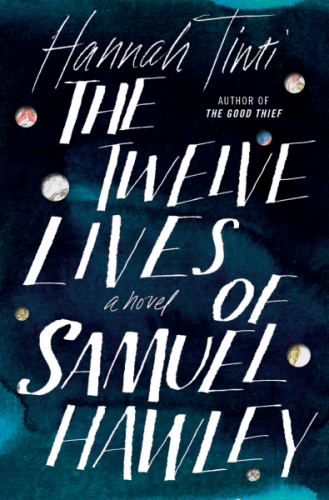‘The Twelve Lives of Samuel Hawley’ provides much needed light of criminals
As the daughter of an ex-prisoner, I don’t relate to most real-life teenagers. I don’t relate to most fictional teenagers, either. Therefore, it’s hard for me to read books with a teenage protagonist. Hannah Tinti’s “The Twelve Lives of Samuel Hawley” provided me with a teenage girl protagonist, Loo, that I could relate to on an emotional and physical level.
The book starts out with Samuel Hawley, the main character of the book, teaching Loo how to shoot a gun. We learn that he has a gun for almost any occasion that could occur. In fact, he never leaves the house without a gun. This chapter sets up a mysterious tone for Hawley and leaves the reader wanting to know more about him.
In this same chapter, we learn that Loo’s mother, Lucy, died in a tragic drowning accident before Loo was old enough to remember her. Hawley has very clearly not moved on from the death. Every time they move — which is roughly every month — Hawley carries a mini shrine with him and sets it up in the bathroom of every place they stay. The shrine consists of old photos, a random note from her that he found after she died and other odd belongings of hers. He also compares Loo to her. If she does something good, she’s just like her mother. If she does something bad, her mother wouldn’t have liked it. This gave Loo a very resentful feeling, as though she could never measure up to her mother.
Early on in the book, Hawley decides that the constant moving isn’t good for Loo. He decides to permanently move them to Olympus, Massachusetts, the town that Lucy was born and raised in. After rejection from Lucy’s parents upon moving to the town, Hawley and Loo quickly learn that although they have family there, they’re still all on their own. Hawley buys a house anyway and tries to integrate Loo into society, which proves to be quite hard. She skips a grade, so she’s younger than all of the other students in her class and she’s socially awkward. Hawley doesn’t help that after getting into a fight with the fathers of two of her classmates. This leads to a long string of intense bullying, which Loo takes until she snaps one day.
To avoid expulsion or suspension, Hawley agrees to help the principal in a Scottish logging competition. Just before he competed, he took off his shirt and rolled up his pants, revealing 12 scars from bullet holes and sending the entire town into a fit of curiosity and rumors.
At this point, you can kind of start to see an allusion to the 12 Labors of Hercules, which Tinti has mentioned was the inspiration for her novel. Hercules was the son of Zeus, and he killed his wife and children after going insane. I know, it’s nothing like the Disney movie that we all watched as kids.
It only gets worse from here. After killing his family, he was tasked with the responsibility of carrying out extraordinary feats of strength against a wide array of crazy beasts all over the world.
Now, back to Samuel Hawley. The man whose wife drowned in an accident (or so we’ve been told — there are suspicions among the townspeople), and has to do a series of dangerous jobs and is forced to move to a new state so he can carry out a new job almost every month. Up until his bullet wounds are revealed, we don’t know much about him or why he acts the way he does.
At this point, Tinti starts incorporating flashbacks into the book and the focus shifts away from Loo. Each chapter reveals the cause behind a bullet hole. Each scene is drastically different and Tinti does a great job at balancing the difference in each scene, yet keeping them compelling and all equally suspenseful. She also does a great job of not romanticizing the bad characters as well.
By the end of the book, you learn that although Samuel Hawley seems like a horrible person, he’s not. He’s just reckless. He keeps trying to make a good life for Loo but he doesn’t realize that his actions will create a bad reaction. This behavior transcends into Loo and causes her to act out throughout the book.
Tinti does something that most people can’t even fathom. She makes a criminal sound like a normal human, rather than an animal. Coming from a background of parents with criminal pasts, it was refreshing to finally see a criminal not be demonized.


